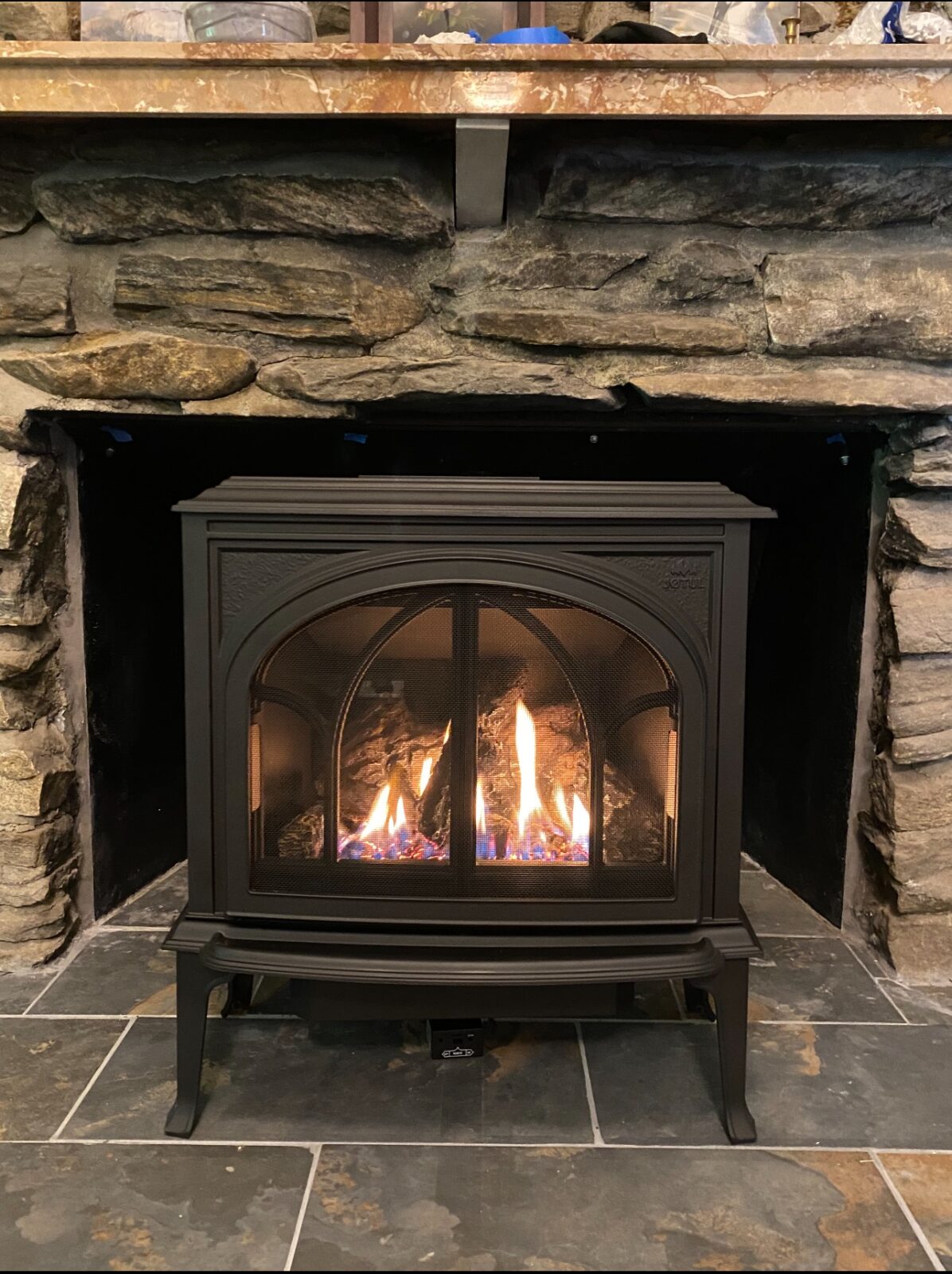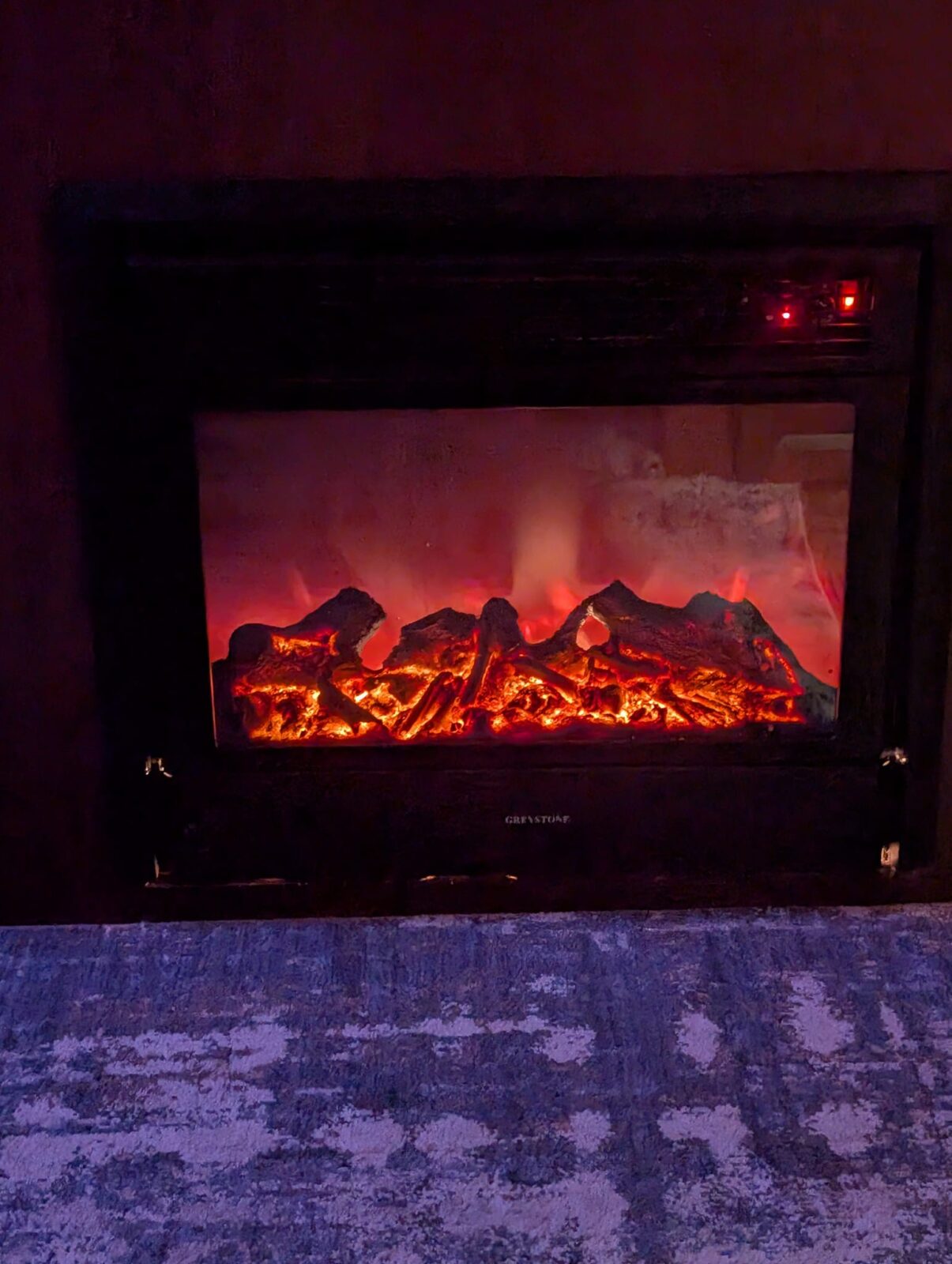Heating your home during those cold days and nights is essential, but how can you do that without breaking the bank? A choice between a gas fireplace and electric fireplace comes to mind. Both these heating solutions are energy-efficient, but which option is cheaper to run?
Multiple elements influence the running cost of a gas fireplace or an electric heat. However, one option is generally considered cheaper than the other.
Let’s examine what it could cost you to heat your home with a gas fireplace and the cost of using electric heat in this guide.
Is It Cheaper To Run Gas Fireplace Or Electric Fireplace?
Energy Cost Comparison Between a Gas Fireplace and Electric Heat
Before determining which heating option is cheaper to run, knowing what influences the cost is essential. In that case, below are the various factors to consider when assessing the cost of gas fireplaces and electric heat.
1. Fuel Type and Cost
Gas fireplaces rely on propane or natural gas. A unit of natural gas is generally cheaper than propane. Natural gas is priced per therm (1 therm = 100,000 BTU), while propane is priced per gallon (1 gallon = 91,500 BTU).
On average, natural gas costs about $1.38 per therm while propane costs $2.48 per gallon.
Note
Natural gas is commonly found in urban and suburban areas and requires a gas line connection. Propane is a more accessible fuel type in rural or remote locations but requires regular refilling.
2. Electricity Rate
Electric heat runs using electricity. Therefore, the cost of operating an electric heat depends on your area’s electricity cost. Electricity is charged per kilowatt-hour (kWh), and electric heaters typically consume 1.5kW per hour.
On average, electricity costs $0.1663 per kWh in the United States.
Note
Hawaii has the highest electricity rate ($0.4414), while Utah has the lowest (0.111 kWh).
3. Heat Output
The amount of heat a gas fireplace produces is measured in British Thermal Units (BTUs). The heat output of a gas fireplace affects its operating cost because it directly influences the amount of fuel it consumes.
Most gas fireplaces usually have a BTU rating of 10,000 to 70,000 BTUs. A gas fireplace with a high BTU rating produces more energy, hence consumes more fuel and is more costly.
On the other hand, electric heaters produce considerably less heat than gas fireplaces. For instance, a space heater generates around 5100 BTUs.
When choosing a gas fireplace or an electric heat for your home, consider the size of the room. Do not pick a unit with a high BTU rating if you intend to use it in a small room.
Related Posts:
- The Best Gas Fireplace Inserts
- Indoor Gas Fireplace Pros And Cons
- Gas Fireplace Ideas For Living Room
4. Usage
The number of hours you run your gas fireplace or electric heat affects the running cost. For instance, running your unit for a few hours is more economical than extended periods. Using a gas fireplace or electric heat as a secondary heating solution instead of a primary one is cheaper.
In addition, intermittent use is cheaper than continuous use. Electric heaters and gas fireplaces continue radiating heat for some time after being turned off, so the room will stay warm long after you turn your unit off without consuming energy.
A Breakdown Of The Hourly Cost Of Running A Gas Fireplace
Below is the cost calculation of running a 20,000 BTU gas fireplace.
Natural Gas
20,000 BTU × $1.38 (current cost of gas per therm) = 27, 600
27, 600 ÷ 100, 000 (BTU per 1 gallon of fuel) = $0.276 per hour
Propane
For every 100,000 BTUs, a propane-powered gas fireplace uses a gallon of gas. This means a 20,000 BTU gas fireplace will run for 5 hours on a gallon of propane.
So, it is $2.48 (cost of a gallon of propane) ÷ 5 hours = 0.496 per hour.
A Breakdown Of The Hourly Cost Of Running An Electric Fireplace
When running, an electric heater uses about 1.5 kW (1500 watts) to produce heat.
1.5 kW× $0.1663 per kWh = $0.24945 per hour
Bottom Line
Generally, a gas fireplace is cheaper than an electric heat if you use natural gas. Propane costs more compared to natural gas and electricity.
An electric fireplace is a more economical choice if you use it only for ambiance. Without heat, an electric fireplace consumes about 0.3 kW (300 watts), translating to 0.3 kW× $0.1663 per kWh = $0.04989 per hour.
Tips To Reduce A Gas Fireplace And An Electric Heat Running Cost
Below are ways to minimize the amount of money it will cost you to run a gas fireplace or an electric heater.
a) Adjust The Temperature
Set your gas fireplace or electric heater to the lowest comfortable temperature. This way, you can avoid wasting fuel, producing heat that you do not need.
b) Turn On Your Gas Fireplace or Electric Heater Only When Needed
Avoid wasting energy and running up your gas or electricity bill by setting your gas fireplace or electric heater to run only at specific times. Instead of letting your heating unit run throughout the day, set it to operate only when you are inside the room.
In addition, turn on your electric heater or gas fireplace only in rooms you are actively using.
c) Run Your Gas Fireplace or Electric Heater Intermittently
Rather than keeping your heating unit running continuously, use it for short durations to save on energy costs. For instance, let it run for about 30 minutes, then turn it off for some time, and repeat this cycle. The residual heat will keep the room warm when the gas fireplace or electric heater is off.
d) Keep The Heat Inside
You’ll be forced to run your gas fireplace or electric heater longer to keep the room warm if heat escapes from certain areas of the house. Fortunately, you can avoid heat loss and prevent drafts by sealing and insulating your home. Below is how to do so:
- Seal gaps on doors, frames, and windows with caulk.
- Put weather strips around doors and windows to block drafts.
- Keep cold air out by putting door sweeps under exterior doors.
- Insulate the walls, crawl space, and attic properly.
e) Regular Maintenance and Inspection
An electric heater or gas fireplace in excellent working condition performs optimally (it will warm your home more efficiently using less energy). Clean your gas fireplace regularly and inspect it annually. As for an electric heater, wipe and clean it frequently.
f) Upgrade to An Energy Efficient Gas Fireplace or Electric Heater
You can also lower the costs of running a gas fireplace or electric heater by upgrading to an energy-efficient model. Choose a unit designed to optimize heat production while reducing energy loss.
To Summarize,
Since natural gas is more affordable than electricity, a gas fireplace is cheaper to operate. It is also a better solution for heating larger spaces than electric heaters. However, an electric heater will serve you better if you want localized heat in small areas. Electric heaters can also be moved around.

Hi! I’m Susie, the creative mind behind Cozy Castle 101. I love sharing easy and simple ideas to make home and garden spaces cozy and inviting. From simple DIY projects and fun crafts to family-friendly recipes, I’m all about creating a warm, welcoming home where memories are made. Join me as I explore ways to add a bit of creativity and charm to everyday life!



